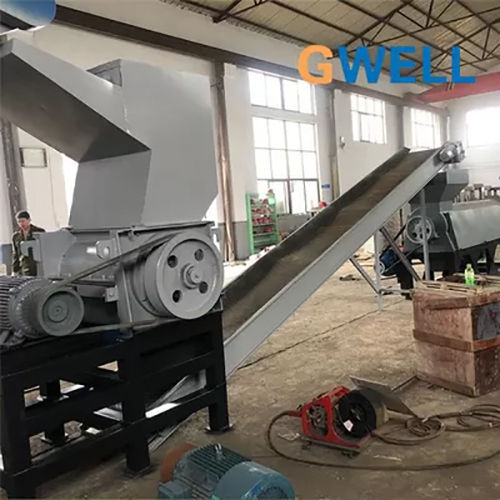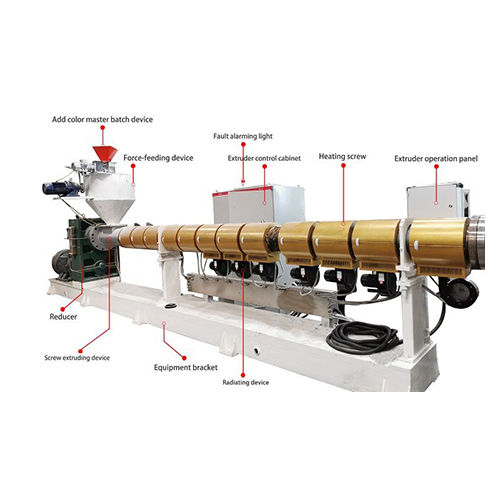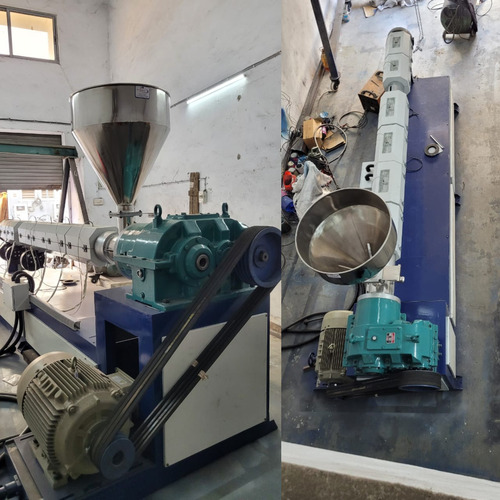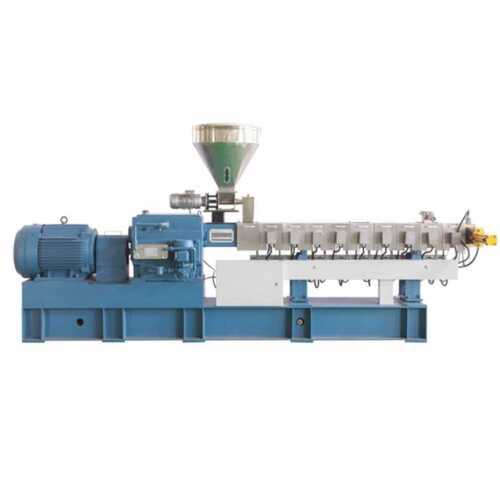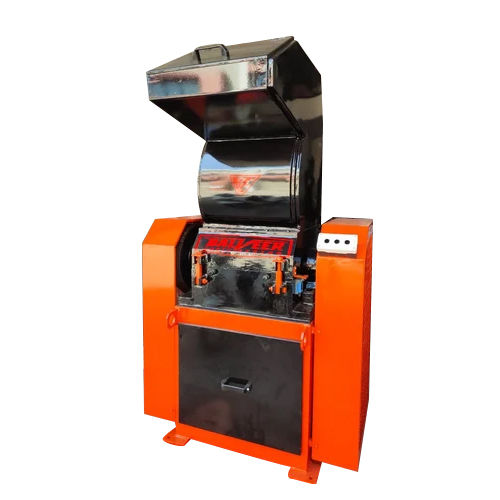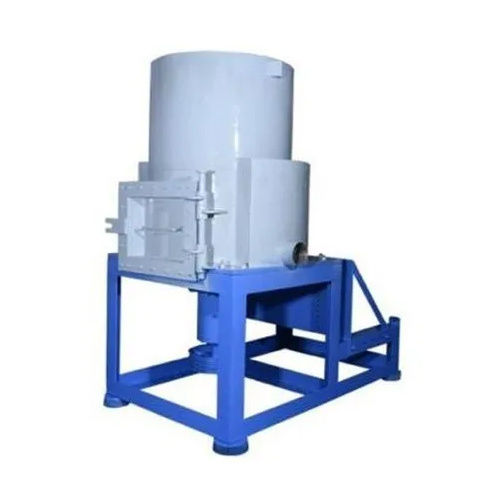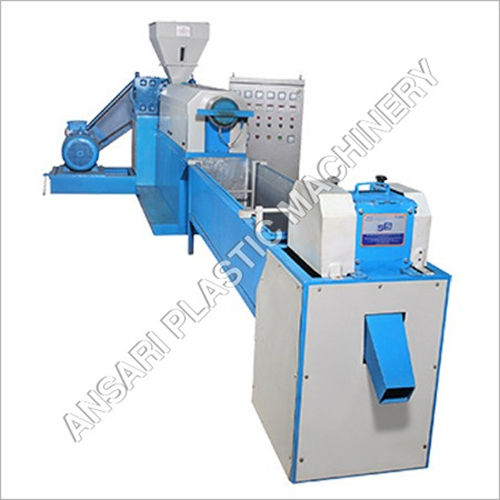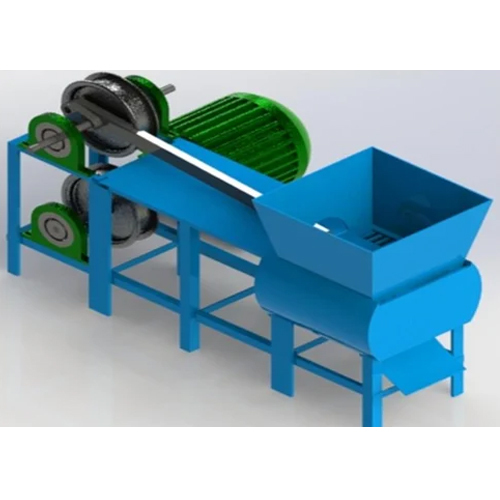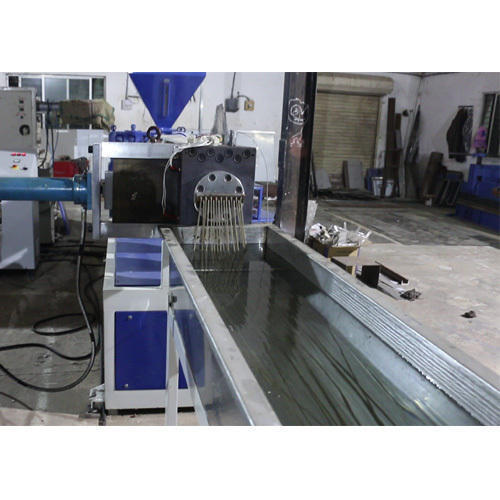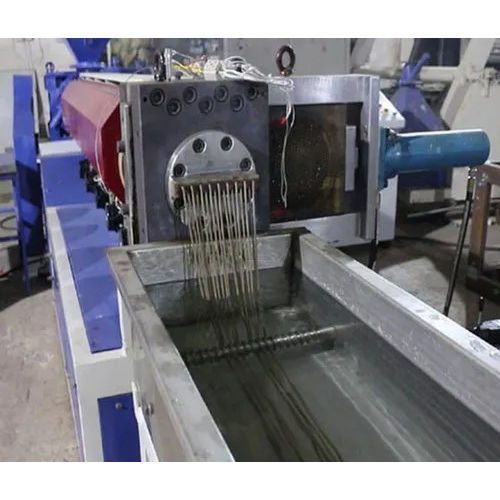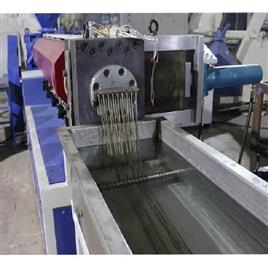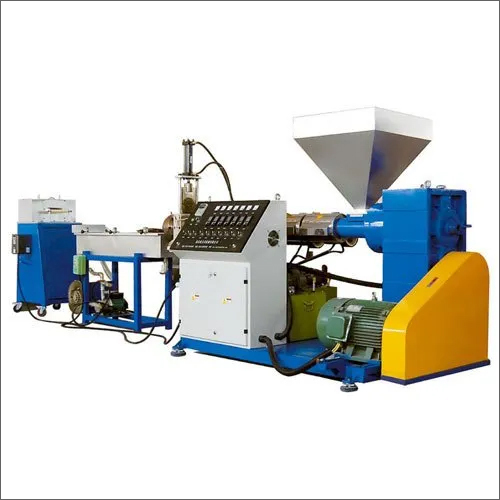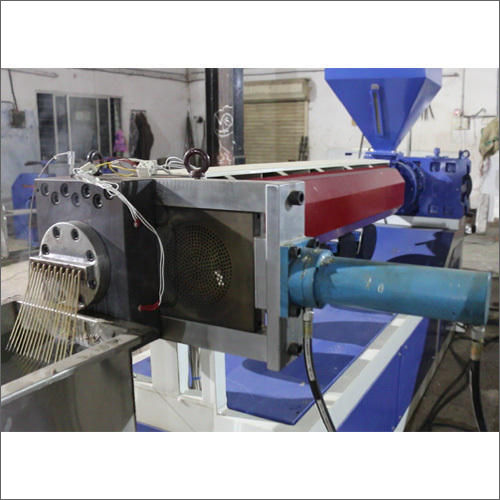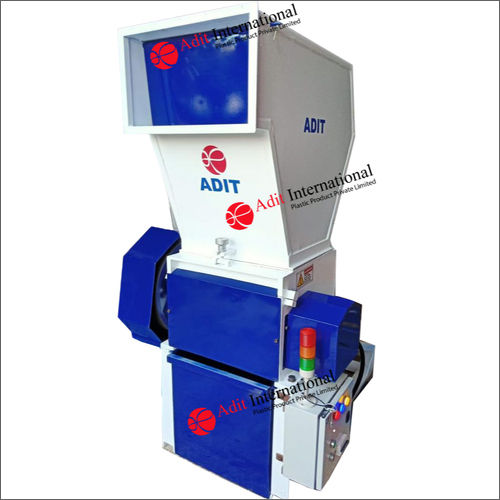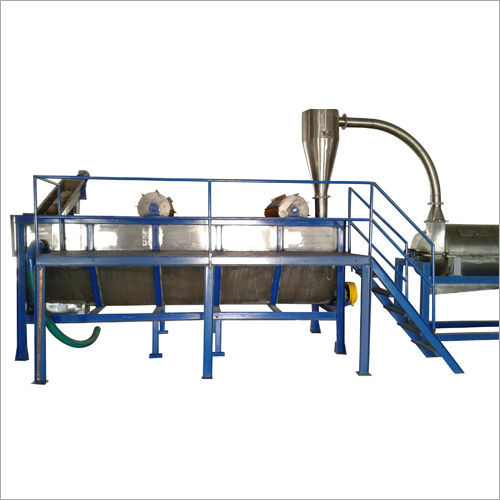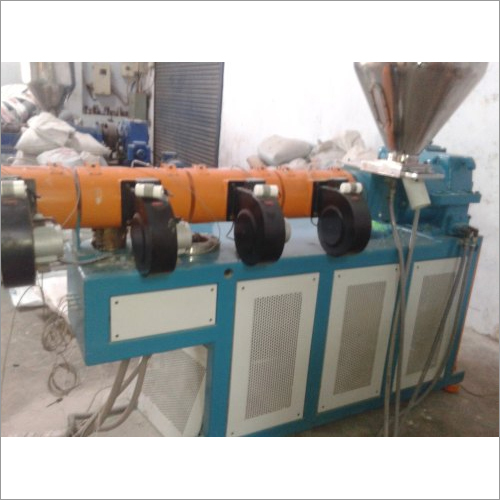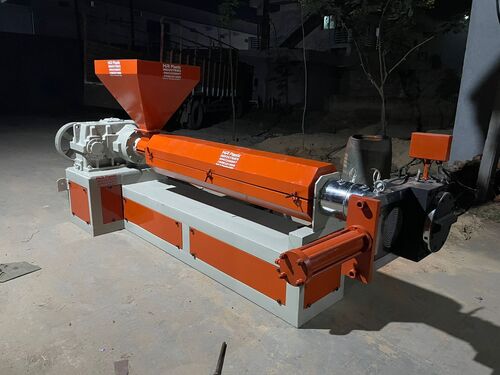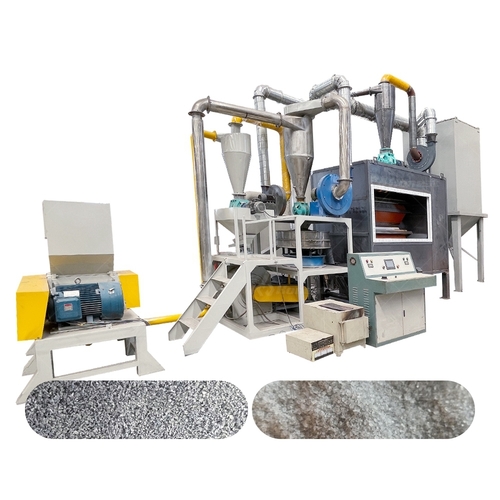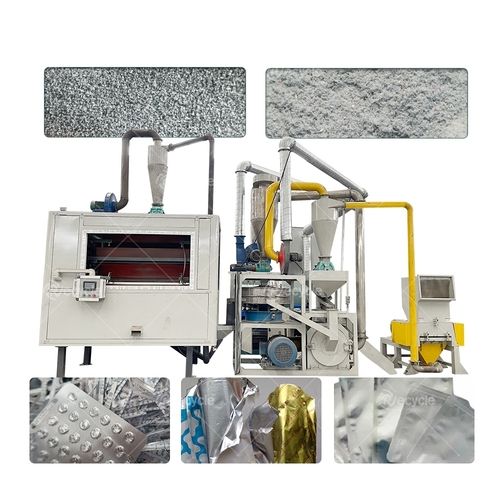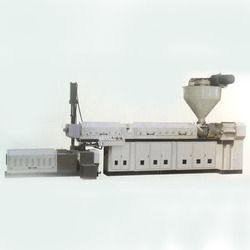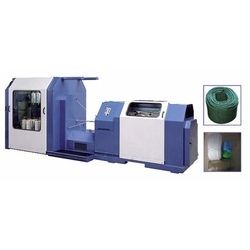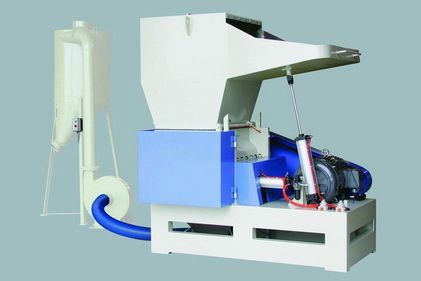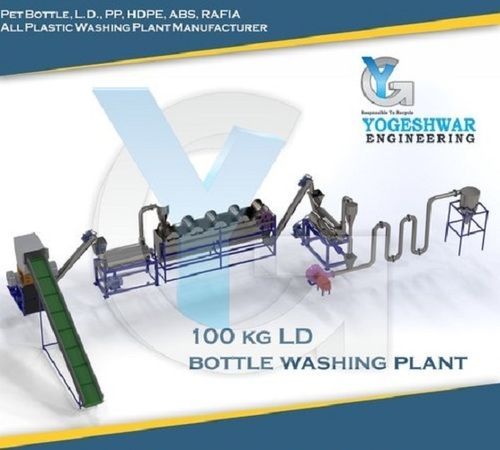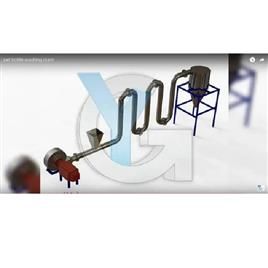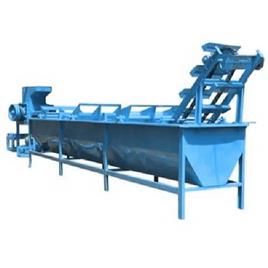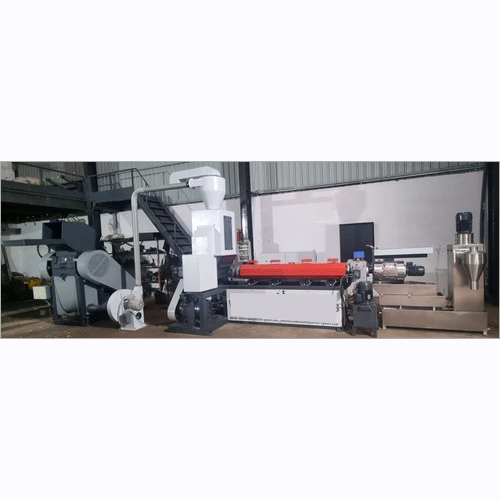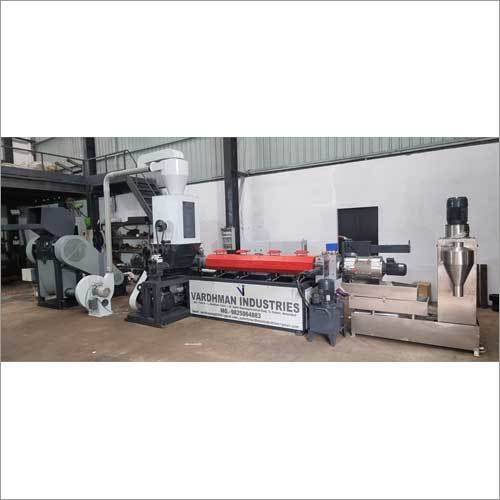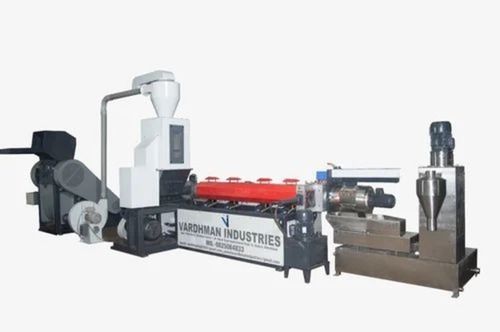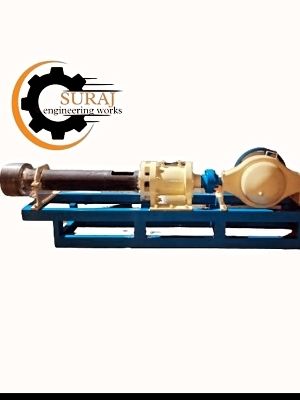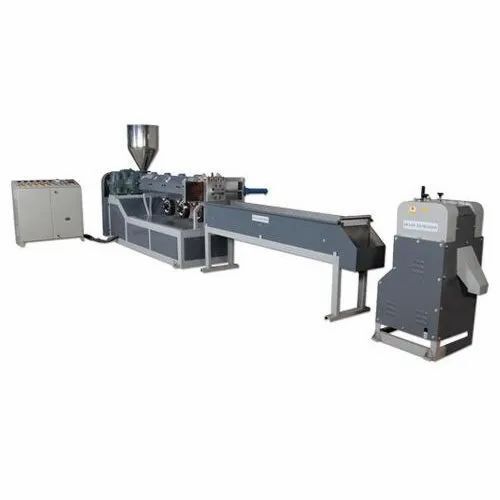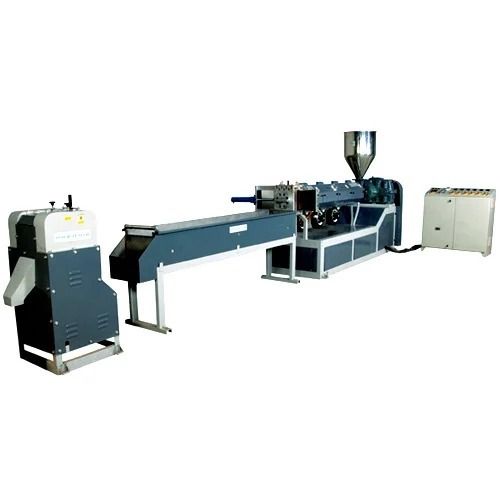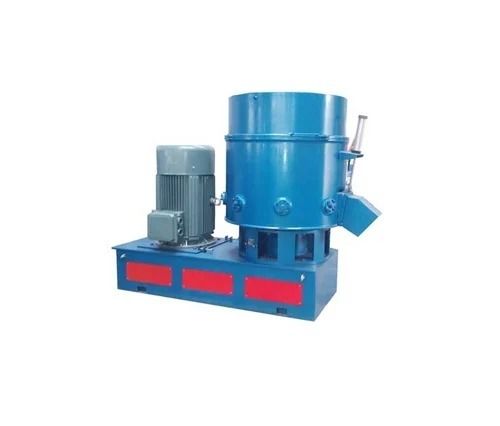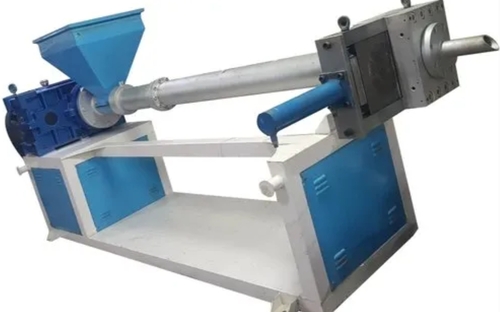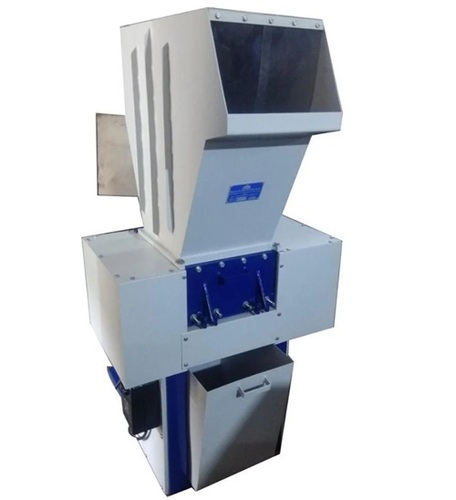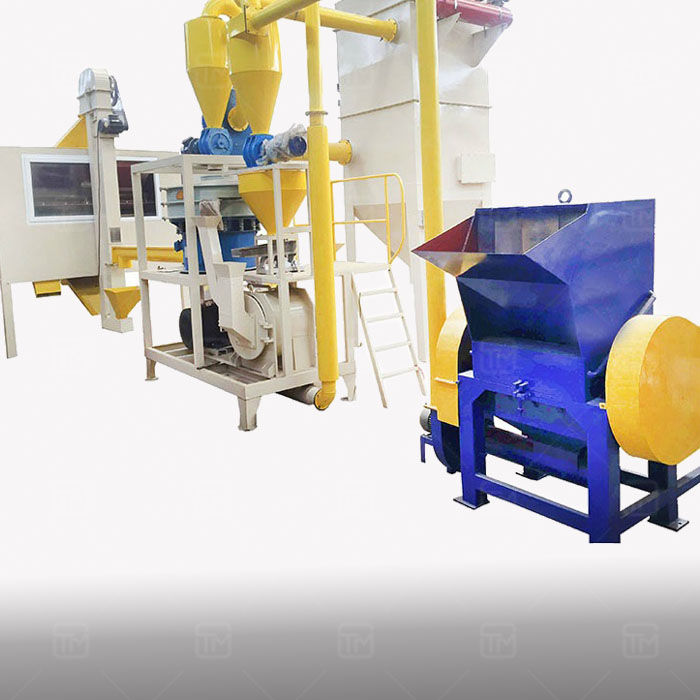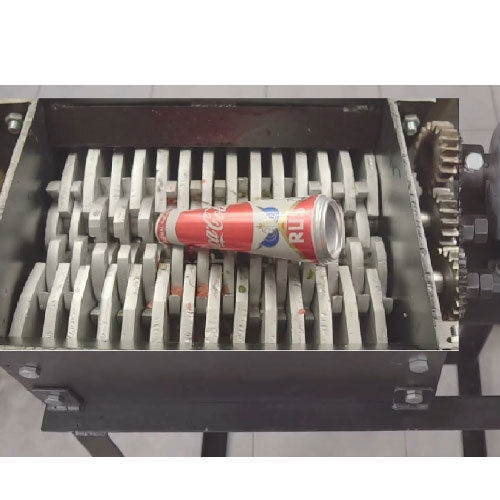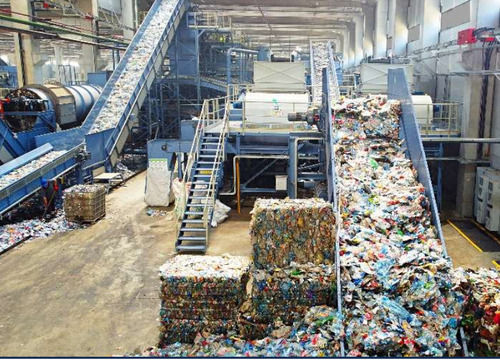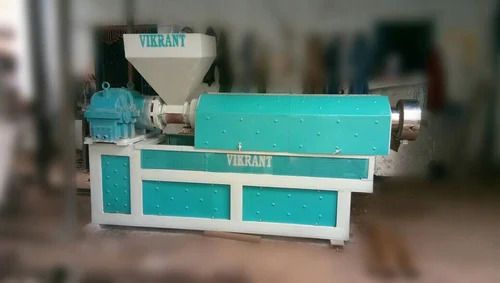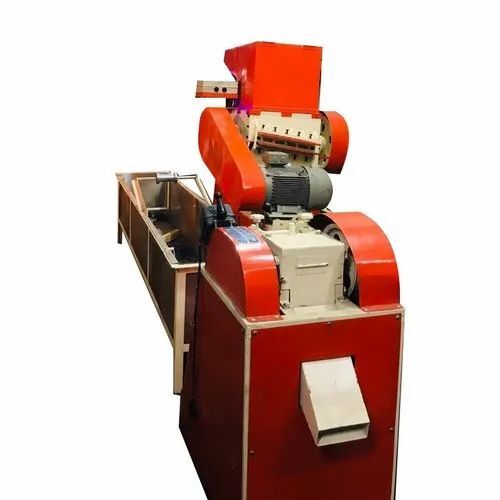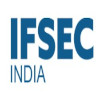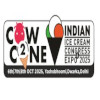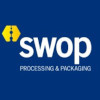- Tradeindia
- Plastic Processing Machinery
- Plastic Recycling Machines
Plastic Recycling Machines
(298 products)Hdpe Plastic Recycling Machine - Automatic Grade: Semi-Automatic
Price: 2300000 INR/Unit
MOQ1 Unit/Units
MaterialStainless Steel
ComputerizedNo
Automatic GradeSemi-Automatic
Control SystemFrequency Speed Control
Drive TypeDirect
WarrantyYes
Automatic Recycle Plastic Grinder Granulator Machine For Injection Moulded Articles
Price: 1000000 INR/Set
MOQ1 Set/Sets
ColorOther
MaterialStainless steel
FeatureDurable Less Power Consumable Rust Proof Heavy Duty Machine Highly Efficient Other
ComputerizedYes
Automatic GradeAutomatic
Control SystemPLC Control
Semi-Automatic Recycling Plastic Waste Crusher Machine
MOQ1 Unit/Units
Product TypeMachine Parts
MaterialStainless Steel
ComputerizedNo
Automatic GradeSemi-Automatic
Voltage220-440 Volt (v)
Control SystemFrequency Speed Control
Semi Automatic Plastic Recycling Extruder Machine
MOQ10 Unit/Units
TechnologyCNC
Power SourceElectricity
Operating TypeSemi Automatic
Surface TreatmentPainted
Usage & ApplicationsIndustrial
Plastic Recycling Machine - HDPE Compatible 240V Electric Drive | PLC Control System Automatic Operation Customizable Colors Warranty Included
Price: 1751000 INR/Piece
MOQ1 Piece/Pieces
ColorAs per requirement
TypePlastic Recycling Machine
MaterialHDPE
ComputerizedYes
Automatic GradeAutomatic
Control SystemPLC Control
View More
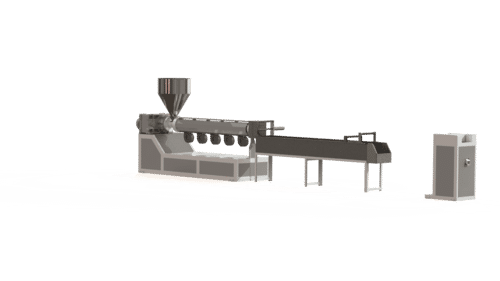
Plastic Recycling Machinery - Automatic Grade: Semi-Automatic
Price : 1751000 INR
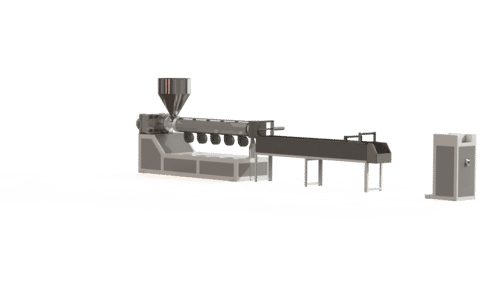
Plastic Recycling Machine - Automatic Grade: Semi-Automatic
Price : 1751000 INR
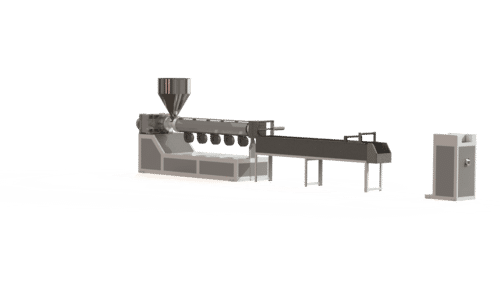
Hdpe Plastic Recycling Machine - Automatic Grade: Automatic
Price : 1751000 INR
Single Shaft Water Squeezer - Carbon Steel 3000x500x1500 mm Silver - Automatic 120 HP 1000 Kg/hr Capacity PLC Control 95% Drying Efficiency
Price Trend: 50000-1000000 USD ($)/Set
MOQ1 Set/Sets
Materialcarbon steel
Capacity1000 Kg/hr
ComputerizedYes
Automatic GradeAutomatic
Control SystemPLC Control
Drive TypeDirect
Plastic Recycling Machine - Mild Steel 500 Kg/hr Multi Color | Fully Automatic System Die Face Cutter for Precise Granules 12-Month Warranty
Price: 1300000 INR/Unit
MOQ1 Unit/Units
ColorMulti color
TypePlastic Recycling machine
MaterialMild Steel
Capacity500 Kg/hr
ComputerizedYes
Automatic GradeAutomatic
View More
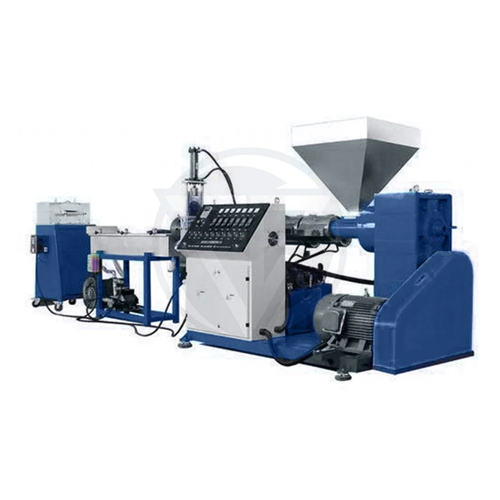
Automatic Plastic Recycling Machine - Capacity: 150 Kg/Hr
Price : 1250000.0 INR
Waste Plastic Recycling Machine - 80-150 kg/hr Capacity Semi Automatic Electric Power 40-60 kW Motor Power 2 Year Warranty Silver Metal Finish PLC Control
Price: 900000 INR/Plant
MOQ1 Plant/Plants
ColorSilver
TypeWaste Plastic Recycling Machine
MaterialMetal
ComputerizedNo
Automatic GradeAutomatic
Control SystemPLC Control
View More
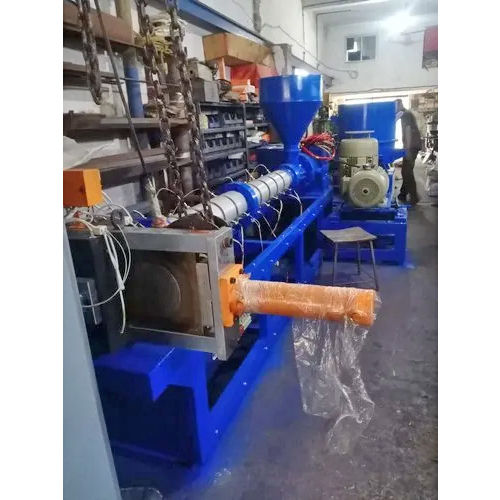
Semi-Automatic Abs Plastic Recycling Machine
Price : 1500000 INR
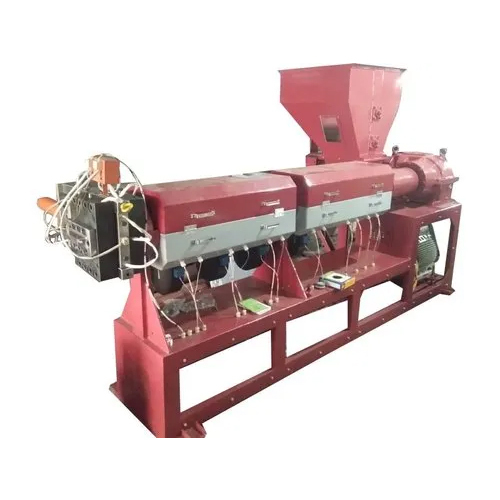
Semi-Automatic 380V Plastic Waste Recycling Machine
Price : 1650000 INR
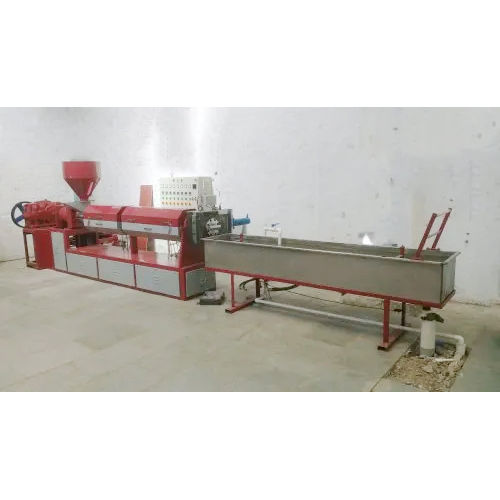
Semi-Automatic Semi Automatic Plastic Recycling Machine
Price : 1000000 INR
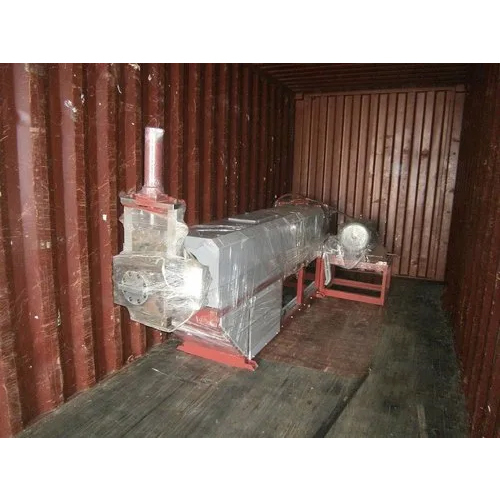
Semi-Automatic 30Kw Plastic Recycling Machine
Price : 1000000 INR
Semi-Automatic Plastic Bottles Recycle Machine
Price: 320000 INR/Unit
MOQ10 Unit/Units
MaterialStainless Steel
ComputerizedNo
Automatic GradeSemi-Automatic
Control SystemFrequency Speed Control
Drive TypeDirect
WarrantyYes
Plastic Recycling Plant And Machinery - Automatic Grade: Automatic
MOQ1 Unit/Units
TypePlastic Recycling Plant And Machinery
MaterialMetal
Automatic GradeAutomatic
Control SystemHuman Machine Interface
ColorBlue
Warranty1 Year
Pragati Extrusion India Private Limited
Shapar
 Trusted Seller
Trusted Seller6 Years
View More
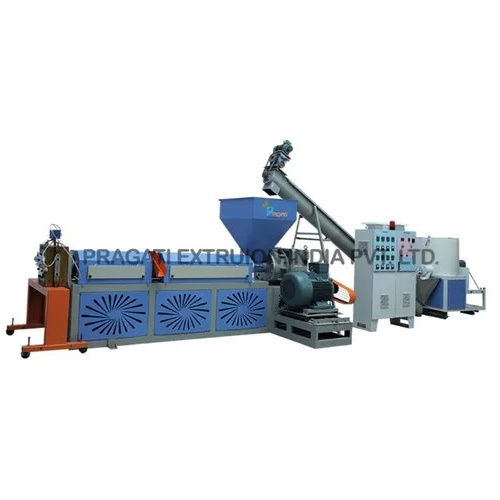
75 Hp Single Extruder Plastic Recycling Machine - Automatic Grade: Automatic
Price : 2651000 INR
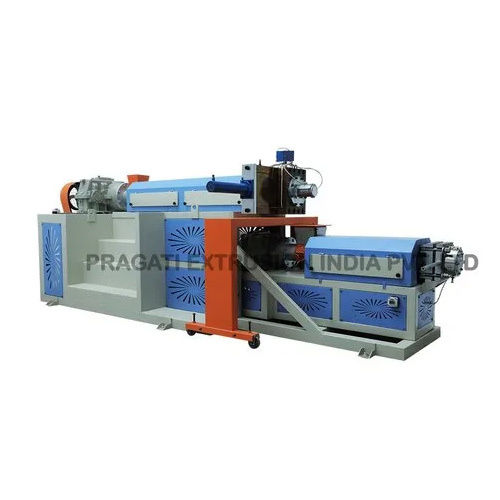
Two Stage Extruder Plastic Recycling Machine - Color: Blue
Price : 4951000 INR
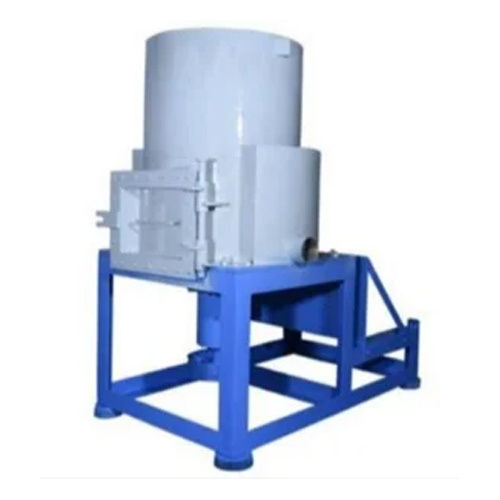
28X28 Plastic Recycling Mixture Machine - Automatic Grade: Automatic
Price : 349000 INR
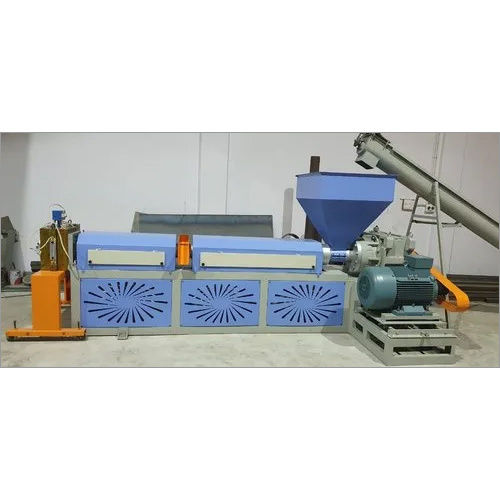
25 HP Single Extruder Plastic Recycling Machine - Mild Steel 100 Kg/hr Capacity Blue Color Automatic Operation | 25 Horsepower Power 1 Year Warranty
Price : 1125000 INR
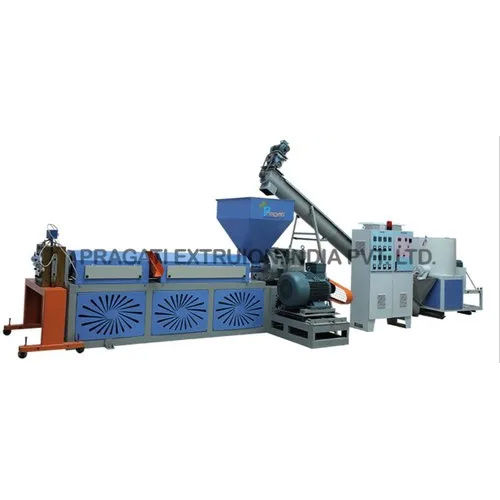
40 Hp Single Extruder Plastic Recycling Machine - Automatic Grade: Automatic
Price : 1575000 INR
Automatic Plastic Recycling Machinery
Price: 600000.00 INR/Unit
MOQ1 Unit/Units
ColorBlue
TypePlastic Recycling Machine
Material41 B
ComputerizedNo
Automatic GradeAutomatic
Control SystemPLC Control
View More

Semi-Automatic Plastic Recycling Machine
Price : 350000 INR
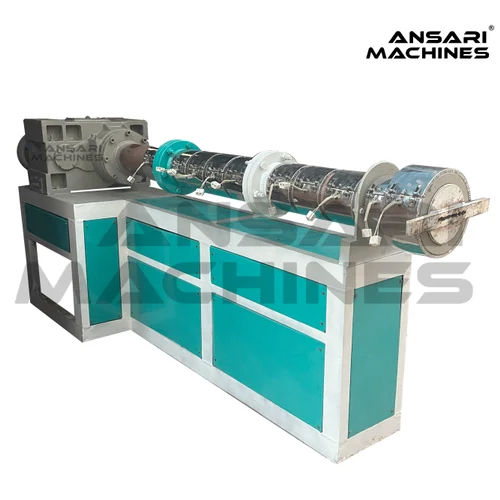
Semi-Automatic Automatic Plastic Recycling Machine
Price : 800000 INR
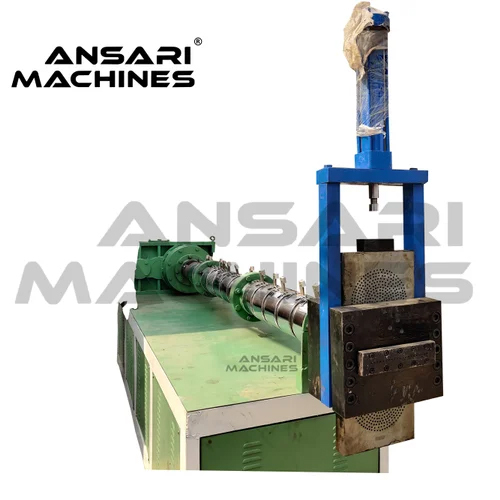
Plastic Extruder Recycling Machines - Mild Steel Semi-Automatic Up to 100 Kg/hr Capacity Green Color | Warranty Available
Price : 680000 INR

Semi-Automatic Plastic Recycling Machine
Price : 350000 INR

Semi-Automatic Plastic Recycling Machine
Price : 350000 INR
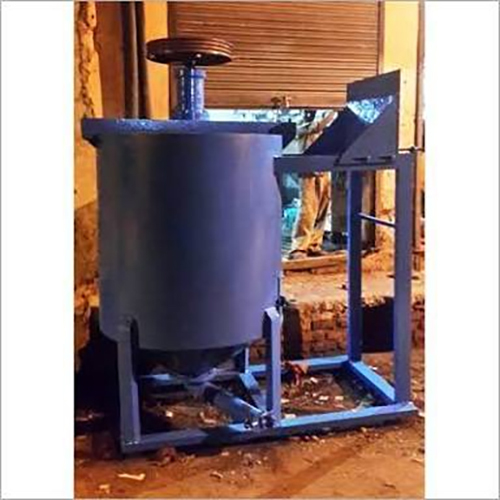
Semi-Automatic Plastic Washing Recycling Machine
Price : 95000.00 INR
Automatic Plastic Extruder Machine - 60mm to 150mm Screw Size 100-400 Kg/hr Capacity | Energy Efficient Shock Proof Easy to Use Computerized
Price: 27397 USD ($)/Set
MOQ1 Set/Sets
ColorAs Required
TypeIndustrial
MaterialLD HD LLDP PP
Capacity100-400 Kg/hr
ComputerizedYes
Automatic GradeAutomatic
Top Rated Products
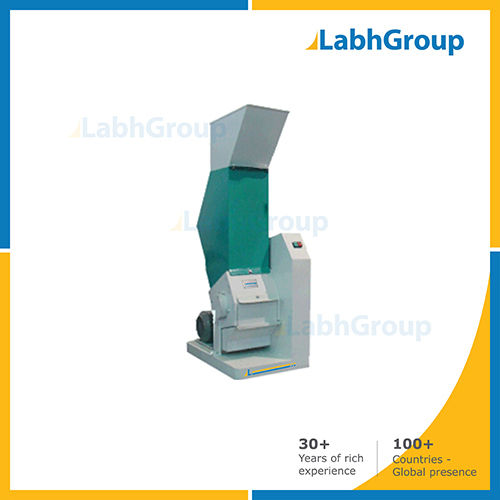
Automatic Recycle Plastic Grinder Granulator Machine For Injection Moulded Articles
Labh Projects Pvt. Ltd.
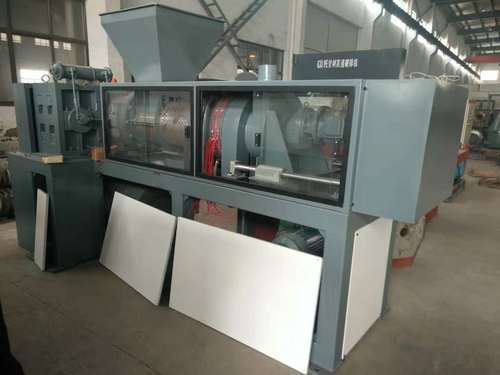
Single Shaft Water Squeezer - Carbon Steel 3000x500x1500 mm Silver - Automatic 120 HP 1000 Kg/hr Capacity PLC Control 95% Drying Efficiency
Zhangjiagang Grande Machinery Co. Ltd
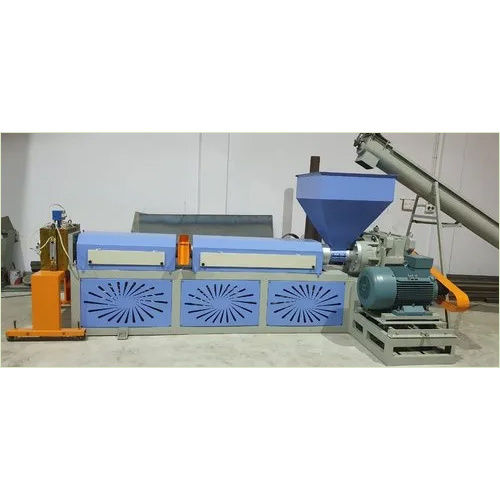
Plastic Recycling Plant And Machinery - Automatic Grade: Automatic
Pragati Extrusion India Private Limited
FAQs Related to Plastic Recycling Machines
- Washing & Drying machine
- Separation system
- Granulators & shredders
- Pelletize Machines
- Soring & Categorizing machine
- Make market research
- Create a business strategy
- Make registration
- Collect money
- Select an ideal factory
- Determine how to gather used plastic
- Invest in machinery & equipment
- Arrange the utilities
- Finally promote your business
- Plastic waste collection
- Plastics are sorted into categories.
- Cleaning to Get Rid of Impurities
- Resizing and Shredding
- Plastics identification and separation
- Compounding
Industrial Plastic Recycling Machine - Metal Automatic 440 Power | Human Machine Interface Warranty Included
MOQ1 Unit/Units
TypeIndustrial Plastic Recycling Machine
MaterialMetal
Automatic GradeAutomatic
Control SystemHuman Machine Interface
Power440 Volt (v)
WarrantyYes
View More
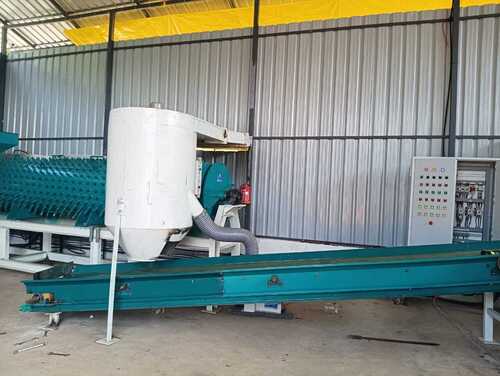
Easy Installation Plastic Bottle Scrap Recycle Machine
Price : 850000 INR
Flat Yarn Machine
Price: 1225000 INR/Kilograms
MOQ1 Kilograms/Kilograms
ColorBlue and White
TypePlastic Recycling Machine
MaterialMetal
Capacity500 kg/hr
ComputerizedNo
Automatic GradeSemi-Automatic
Automatic Industrial Plastic Recycle Machine
Price: 1565000 INR/Unit
MOQ1 Unit/Units
ColorBlue and Silver
TypeIndustrial Plastic Recycle Machine
MaterialMild Steel
Capacity300 Kg/hr
ComputerizedNo
Automatic GradeAutomatic
Automatic Plastic Recycling Machine Capacity: 2 T/Hr
Price: 1151000 INR/Piece
MOQ5 Piece/Pieces
ColorWhite
Product TypePlastic Recycling Machine
General UsePlastic Industry
MaterialMild Steel Stainless Steel Other
Capacity2 T/hr
AutomaticYes
Metal Automatic Plastic Recycling Machine
MOQ1 Unit/Units
TypeAutomatic Plastic Recycling Machine
MaterialMetal
Automatic GradeAutomatic
Control SystemHuman Machine Interface
Power220-240 Volt (v)
WarrantyYes
Semi-Automatic Hdpe Plastic Recycling Machine
Price: 900000 INR/Unit
MOQ1 Unit/Units
TypePlastic Recycling Machine
MaterialMild Steel
Automatic GradeSemi-Automatic
Drive TypeElectric
Voltage220-440 Volt (v)
Power15 Horsepower (HP)
Rinsing Tank Plastic Recycling Machine
Product DescriptionRinsing Tank Plastic Recycling Machine
View More
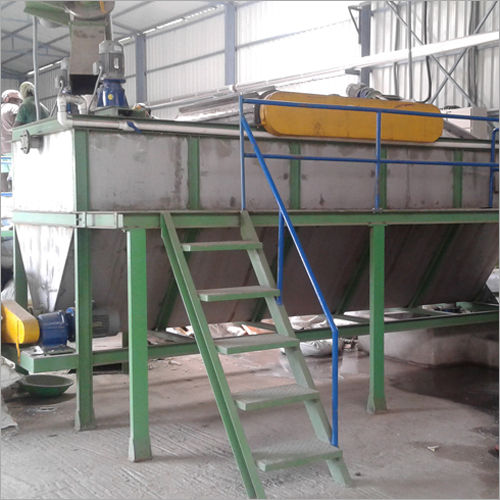
Gravity Separator Plastic Recycling Machine
Get Best Deal
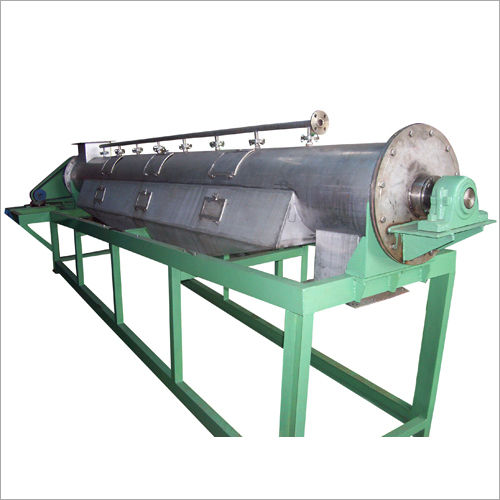
Plastic Friction Washer Recycling Machine
Get Best Deal
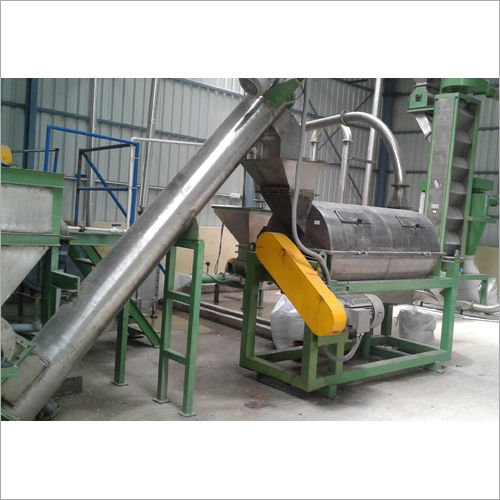
Spin Dryer Plastic Recycling Machine
Get Best Deal
Semi-Automatic Pvc Recycling Machine
Price: 1100000 INR/Unit
MOQ1 Unit/Units
ColorMulticolor
Product TypeOther PVC Pipe Machine
MaterialMS
Power SourceElectricity
Operating TypeAutomatic
Automatic GradeSemi-Automatic
View More
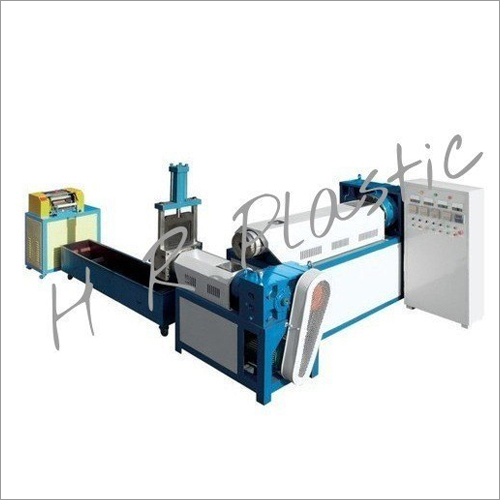
Automatic Two Stage Plastic Recycling Machine
Price : 1100000 INR

Plastic Recycling Machine - Stainless Steel Automatic Operation Multicolor Design | Includes Warranty Advanced Efficiency Features
Price : 1100000 INR
Aluminum Plastic Sorting Recycling Machine - Capacity: 300-1000 Kg/Hr
Price: 40000 USD ($)/Set
MOQ1 Set/Sets
MaterialMetal
Capacity300-1000 Kg/hr
Automatic GradeAutomatic
Weight (kg)14000 Kilograms (kg)
ColorMulticolor
Warranty1 Year
Henan Recycle Environmental Protection Equipment Co. Ltd
Zhengzhou
Plastic Recycling Extrusion Line - High Grade Raw Material Innovative Technology for Two-Wheelers
MaterialSteel
Dimensions10Mx2Mx3M
Power200Kw
Capacity1000Kg/Hr
Weight10000Kg
Warranty1 Year
Plastic Recycling Crusher Plant
Power SupplyAc 380V/220V
Output32~48Kg/8Hrs
NeedlesDouble
ControllerOmron
SensorPhilips
CuttingAutomatic
View More
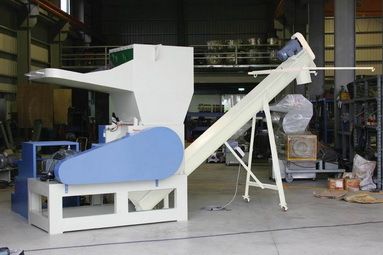
Plastic Recycle Crushing Plant
Get Best Deal
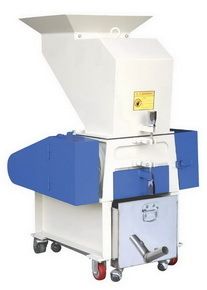
Small Type Crusher Machine
Get Best Deal

Granulator / Crusher Machine
Get Best Deal
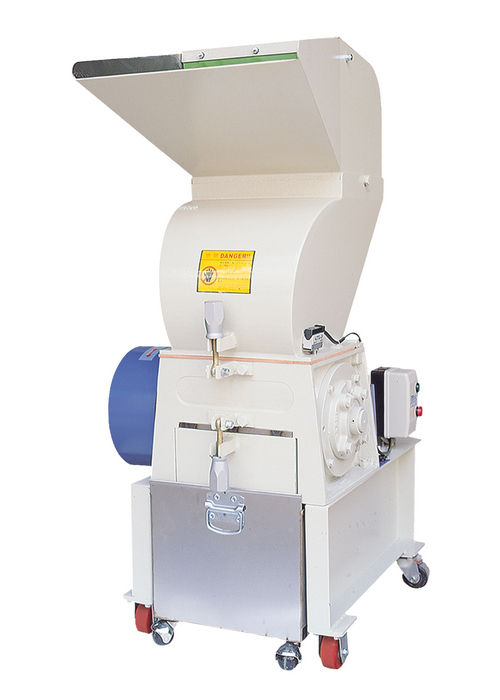
Plastic Crusher And Mixer Machine
Get Best Deal
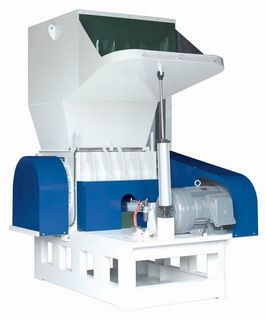
Power Crusher Chemical Name: Attar Degs
Get Best Deal
Raffia Plastic Recycling Machine - ABS HDPE PET Material with Automatic Operation | Direct Drive Type Multi-Color Design
MOQ1 Unit/Units
TypeRaffia Recycling Plant
MaterialABS HDPE PET
Automatic GradeAutomatic
Drive TypeDirect
ColorMix
View More
Bottle Washing Plant
Get Best Deal
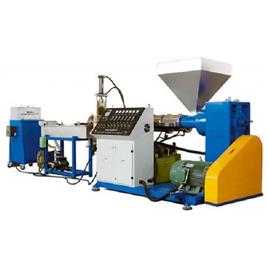
Plastic Pet Bottle Recycling Machine
Get Best Deal
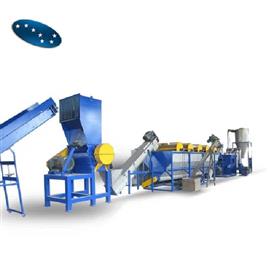
Pet Plastic Bottle Recycling Machine 3
Get Best Deal
Bottle Washing Plant
Get Best Deal
Plastic Dana Recycling Machine
MaterialSteel
Dimensions10X5X3 Meters
Weight5000 Kg
Power100 Kw
Capacity1000 Kg/Hr
Voltage440V
Plastic Recycling Machine - 150kg-200kg Capacity 30 Power 120mm Screw Diameter Human Machine Interface Control System Blue Color En19 Material Belt Drive Type 1-Year Warranty Sustainable Waste Management Solution
Price: 120000 INR/Unit
MOQ1 Unit/Units
ColorBlue
TypePlastic Recycling Machines
MaterialEn19
Control SystemHuman Machine Interface
Drive TypeBelt Type
Screw Diameter120 Millimeter (mm)
User Friendly Extrusion Plastic Recycling Machine
Price: 1500000 INR/Piece
MOQ1 Piece/Pieces
ColorGrey
TypeExtrusion Plastic Recycling Machine
MaterialMild Steel
Automatic GradeAutomatic
View More
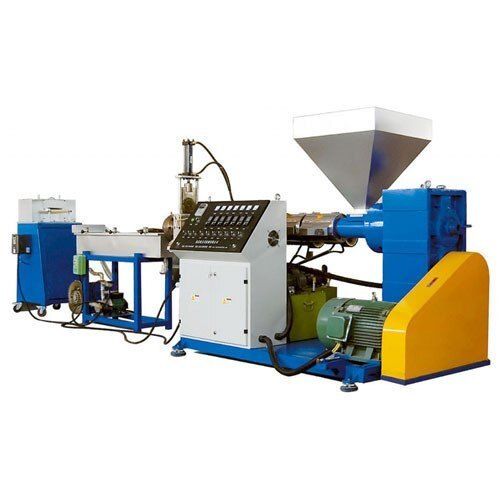
Automatic Electric Plastic Recycling Machine
Price : 1500000 INR
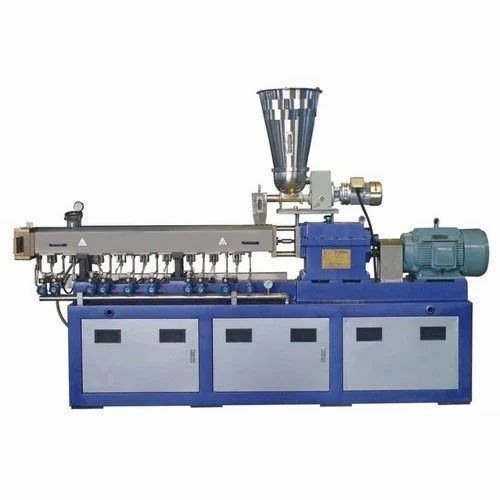
Extruder Machine - 50-100 kg/hr 40HP Automatic Stainless Steel Blue | Efficient Plastic Processing Sustainable Recycling Solution Versatile Plastic Types
Price Trend : 2500000.00 - 3000000.00 INR
Blue And Silver 100 Kg/Hr Capacity Paint Coated Automatic Mild Steel Plastic Recycling Machine
Price: 1100000 INR/Unit
MOQ1 Unit/Units
ColorBlue And Silver
TypePlastic Recycling Machine
MaterialMild Steel
Capacity100 Kg/hr
ComputerizedNo
Automatic GradeAutomatic
Latest from Plastic Recycling Machines
Ready To Ship Plastic Recycling Machines
What is Plastic Recycling Machine?
Types of Plastic Recycling Machine
Working on Plastic Recycling Machine
Plastic Recycling Business in India
- High-Density Polyethylene (HDPE)
- Low-Density Polyethylene (LDPE)
- Polystyrene (PS or Styrofoam)
- Polyethylene Terephthalate (PET or PETE)
- Polypropylene (PP)
- Polyvinyl Chloride (PVC or Vinyl)
- Think about the requirements for a plastic waste recycling plant first.
- Look into the whole cost of setting up a recycling facility.
- Identify whether a facility or a piece of land is needed.
- Start collecting plastic garbage.
- Establish the tools and resources required to launch a plastic recycling enterprise.
- Choose which plastic garbage you will recycle from the many different types available.
- Analyze the potential value of recycling plastic.
- Take the time to carry out thorough research on the investment's return.
Plastic Recycling Machines Price List
Product Name | Expected Price |
|---|---|
| Plastic Recycling Machine | 1300000 |
| Plastic Recycling Machines | 45000 |
| Plastic Recycling Machines | 725000 |
| Semi Automatic Plastic Recycling Machine | 1000000 |
| ABS Plastic Recycling Machine | 1500000 |
| Electric Semi Automatic Plastic Recycling Machine | 420000 |
| Plastic Recycling Machines | 120000 |
| Industrial Plastic Recycle Machine | 1565000 |
| Plastic Recycling Machine | 350000 |
| Automatic Plastic Recycling Machine | 800000 |
This Data was Last Updated on 2025-06-14
Plastic Recycling Machines Manufacturers | Suppliers in India
Company Name | Member Since |
|---|---|
Ansari Machines Private Limited New Delhi India | 10 Years |
Ideal Equipments Company Navi Mumbai India | 7 Years |
Labh Projects Pvt. Ltd. Ahmedabad India | 6 Years |
Pragati Extrusion India Private Limited Shapar India | 6 Years |
Zhangjiagang Grande Machinery Co. Ltd Shanghai China | 5 Years |
Hnu Enterprise Ahmedabad India | 4 Years |
Revlon Industries Ahmedabad India | 4 Years |
Prachi Plastic Ahmedabad India | 4 Years |
Adit International Plastic Products Pvt. Ltd. Chennai India | 4 Years |
Jiangxi Xinyiyu Molding Equipment Co. Ltd. Yichun China | 3 Years |
Upcoming Tradeshows
IFSEC INDIA 2025
Thu, 11 Dec, 2025 - Sat, 13 Dec, 2025
STEEL CONSTRUCTION EXPO 2025
Thu, 27 Nov, 2025 - Sat, 29 Nov, 2025
INDIAN ICE CREAM CONGRESS & EXPO 2025
Mon, 06 Oct, 2025 - Wed, 08 Oct, 2025
The Harit Bharat Expo 2025
Fri, 25 Jul, 2025 - Sun, 27 Jul, 2025
Auto EV Bharat 2025
Wed, 19 Nov, 2025 - Fri, 21 Nov, 2025
CBD - China (Guangzhou) International Building Decoration Fair 2025
Tue, 08 Jul, 2025 - Fri, 11 Jul, 2025
Mercom India Renewables Summit 2025
Thu, 24 Jul, 2025 - Fri, 25 Jul, 2025
Shanghai World of Packaging (swop) 2025
Tue, 25 Nov, 2025 - Thu, 27 Nov, 2025
MachAuto 2025
Fri, 25 Jul, 2025 - Mon, 28 Jul, 2025
The 5th China International Corrugated & Folding Carton Festival 2025
Thu, 30 Oct, 2025 - Sat, 01 Nov, 2025
Popular Categories


